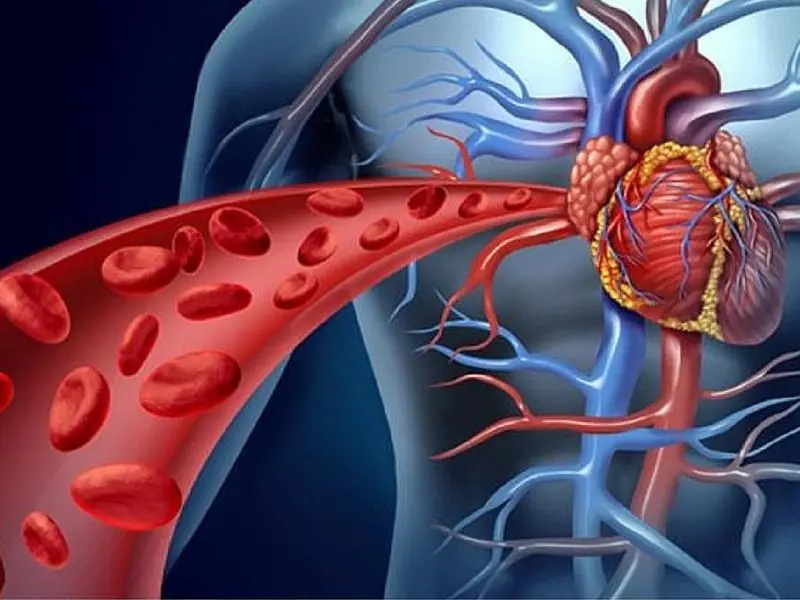
Doctors Explain Why You Should Never Hold Back a Fart
We’ve all been there—feeling the pressure build up but holding it in out of embarrassment. What many people don’t realize is that keeping gas trapped inside isn’t just uncomfortable; it can actually harm your body in surprising ways.

Why Holding in Gas Is Worse Than You Think
- Gas Accumulates Inside the Digestive Tract
When you hold back a fart, you’re forcing gas to stay trapped inside the digestive system when its natural exit has been blocked. This gas forms as a by-product of breaking down food, swallowing air, or eating certain high-fiber meals. If it cannot escape, pressure builds up, leading to bloating, heaviness, and even sharp abdominal pain. Over time, this may interfere with the natural rhythm of digestion. - It Can Trigger Abdominal Discomfort and Indigestion
Frequent gas retention doesn’t just cause temporary pressure—it may overstretch the intestinal walls. This can result in painful cramping, indigestion, or repeated bloating that lingers long after meals. In severe cases, doctors warn that it might even contribute to digestive complications such as intestinal inflammation or diverticulitis, a painful condition where small pouches in the intestines become irritated.

- Your Body May Absorb the Gas Into the Bloodstream
If the gas cannot escape the natural way, your body sometimes reabsorbs part of it back into the bloodstream. This can eventually be expelled through your lungs, leading to unpleasant-smelling breath. Imagine thinking you’ve solved the problem only to discover it resurfacing in a completely different (and socially awkward) way. - It Can Affect Your Mood and Focus
Many people underestimate how much trapped gas impacts daily performance. The discomfort doesn’t just stay in your stomach—it can cause irritability, restlessness, and even difficulty focusing at work or school. Instead of concentrating on important tasks, your body diverts attention to coping with the trapped pressure. Over time, this can make you feel constantly on edge.

Pro Tips to Manage Gas Naturally
- Chew slowly – Prevents swallowing too much air.
- Stay hydrated – Keeps digestion smooth and reduces bloating.
- Watch gas-producing foods – Avoid beans, carbonated drinks, and cabbage before big events.
- Move your body – Light walking or stretching helps release trapped gas.
- Eat balanced meals – Whole grains and veggies are healthy, but pair them wisely with other foods.
The Bottom Line
On average, every person passes gas 14 to 23 times per day—it’s a natural part of being human and actually shows that your digestive system is functioning properly. Instead of being embarrassed, think of it as your body’s way of maintaining balance.
Of course, social etiquette matters. But if you feel the pressure building, it’s much healthier to politely excuse yourself and release it than to suffer in silence. The next time you’re tempted to hold it in, remember—your body (and your digestive system) will thank you for letting go.
News in the same category


Medicinal Health Benefits of Garlic (Raw, Supplement) – Science Based

Why You Should Wash Your Face With Apple Cider Vinegar

If Your Feet Swell It Is a Clear Sign

What Your Feet Are Telling You

6 Health Benefits of Sleeping In a Cold Room and How to Make it Cooler- And Why You May Not Want to Use a Fan

10 Symptoms of Diabetes That May Show Up In Your Feet

This is what sleeping on the left side does for our brain, stomach & glymphatic health

12 Best Foods To Support Digestive and Gut Health

Study suggests anal cancer is on the rise and reveals who’s most at risk

Wife Complains of a Headache, Sleeps, and Dies Without Husband Knowing: This Type of Headache Requires Immediate Hospitalization!

Shocking Effects of Sleeping Less Than 7 Hours — What Really Happens to Your Body
Getting less than seven hours of sleep might feel harmless, but science shows it can quietly damage your body in ways you don’t expect. From hormonal imbalances to skin problems and even digestive issues, sleep deprivation affects far more than just you

Scientists Invent Smart Tooth That Grows Into Your Gums And Connects To Nerves Like the Real Thing

Scientists Say This New Stem Cell Treatment Could End Type 1 Diabetes for Good

Everyday Habits That Can Cause a This Issue To Your Hands

My Nana’s Homemade Cure for Stubborn Throat Mucus That Works Every Time

Doctors Are Shocked by What Happens When You Eat Chia Seeds First Thing in the Morning

Warning Signs of Poor Blood Circulation That Are Easy to Ignore
News Post

Menopause Symptoms That May Surprise You

10 Healthy Sandwich Dos and Don’ts

Never Ever Say These 4 Things at a Funeral — No Matter the Situation
When it comes to funerals and expressions of sympathy, your words don’t need to be profound or poetic.

🥥 15 Compelling Reasons to Include Coconut Water in Your Daily Routine

🌿 30 Remarkable Benefits of Avocado Leaves

🌿 Natural Collagen Boost: Garlic Remedy for Smoother Skin

✨ Brighten Your Smile Naturally: A Simple DIY Teeth Whitening Remedy

🌟 DIY Collagen Ice Cubes for Radiant Skin

🌿 3 Natural Home Remedies to Remove Skin Tags Safely

Medicinal Health Benefits of Garlic (Raw, Supplement) – Science Based

Why You Should Wash Your Face With Apple Cider Vinegar

If Your Feet Swell It Is a Clear Sign

What Your Feet Are Telling You

6 Health Benefits of Sleeping In a Cold Room and How to Make it Cooler- And Why You May Not Want to Use a Fan

The Hidden Meaning Behind Leg-crossing — It’s More Than Just Comfort

10 Symptoms of Diabetes That May Show Up In Your Feet

How To Properly Dispose of Ticks

This is what sleeping on the left side does for our brain, stomach & glymphatic health

12 Best Foods To Support Digestive and Gut Health
